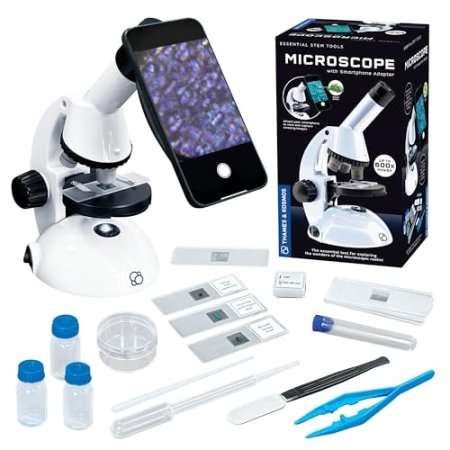Activity and fitness trackers have become essential tools for anyone looking to enhance their physical health and wellness. These devices monitor various aspects of your daily activities and fitness levels, providing valuable insights and motivation.
Whether you're a casual exerciser or a dedicated athlete, understanding how these trackers work and what features they offer can help you choose the right one to meet your needs.
Types of Activity & Fitness Trackers
-
Basic Activity Trackers Basic activity trackers are designed to monitor fundamental metrics such as steps taken, distance traveled, and calories burned. These devices are typically user-friendly and affordable, making them a good choice for beginners.
-
Advanced Fitness Trackers Advanced fitness trackers offer additional features like heart rate monitoring, sleep analysis, and stress management. They provide more detailed insights into your health and fitness, helping you to fine-tune your workouts and recovery.
-
Multi-Sport Trackers Multi-sport trackers are tailored for athletes and fitness enthusiasts who engage in various types of exercises. They support multiple sports modes, including running, cycling, swimming, and more, with specific metrics for each activity.
-
Hybrid Trackers Hybrid trackers combine traditional watch designs with fitness tracking capabilities. They offer basic fitness tracking features while maintaining a classic, stylish appearance.
Key Features to Look For
-
Step Tracking Accurate step tracking is a fundamental feature of most fitness trackers. It helps you monitor your daily activity levels and set walking goals.
-
Heart Rate Monitoring Heart rate monitoring provides insights into your cardiovascular health and exercise intensity. It helps in optimizing workout routines and tracking overall fitness progress.
-
Sleep Tracking Sleep tracking features analyze your sleep patterns, including duration and quality. This information can be crucial for improving your overall health and recovery.
-
GPS and Location Tracking Built-in GPS allows for accurate tracking of outdoor activities such as running and cycling. It provides data on distance, speed, and route taken.
-
Waterproof and Durability For those who swim or engage in outdoor activities, a waterproof tracker is essential. Durability is also important to withstand daily wear and tear.
-
Battery Life Battery life varies among trackers, with some lasting several days on a single charge. Longer battery life means less frequent charging and more consistent tracking.
-
Smartphone Integration Integration with smartphone apps enhances the functionality of fitness trackers. It allows you to view detailed reports, set goals, and share progress.
Benefits of Using Activity & Fitness Trackers
-
Improved Fitness and Health Monitoring Trackers provide a comprehensive view of your fitness and health metrics, helping you stay informed and make data-driven decisions about your workouts and lifestyle.
-
Goal Setting and Achievement Setting and tracking goals becomes easier with a fitness tracker. The ability to monitor progress and receive feedback helps you stay motivated and achieve your fitness objectives.
-
Motivation and Accountability Features like progress reports, challenges, and social sharing options increase motivation and accountability, making it easier to stick to your fitness routine.
-
Real-Time Data and Insights Real-time data allows you to make immediate adjustments to your workouts and health practices. It provides actionable insights to enhance your performance and well-being.
Popular Activity & Fitness Trackers
-
Fitbit Charge 5
- Features : Heart rate monitoring, sleep tracking, built-in GPS, stress management.
- Pros : Comprehensive health insights, long battery life.
- Cons : Requires subscription for advanced features.
-
Apple Watch Series 8
- Features : Advanced heart rate monitoring, ECG, blood oxygen levels, GPS, fitness tracking.
- Pros : Integration with iOS, extensive health features.
- Cons : Higher price point.
-
Garmin Forerunner 945
- Features : Multisport tracking, GPS navigation, heart rate monitoring, advanced performance metrics.
- Pros : Excellent for serious athletes, detailed data.
- Cons : Bulkier design, higher cost.
How to Choose the Right Activity & Fitness Tracker
-
Compatibility Ensure the tracker is compatible with your smartphone’s operating system and any other apps you use for health and fitness.
-
Features Consider what features are most important to you. Whether it’s heart rate monitoring, GPS, or sleep tracking, select a tracker that meets your specific needs.
-
Budget Fitness trackers are available at various price points. Determine your budget and choose a model that offers the best value for its features.
-
User Reviews Reading reviews from other users can provide insights into the reliability and performance of different trackers. Look for feedback on accuracy, ease of use, and customer support.
Conclusion
Activity and fitness trackers are powerful tools for monitoring and improving your health and fitness. By providing valuable data and insights, these devices help you stay motivated, set and achieve goals, and maintain a healthy lifestyle.
Whether you’re new to fitness tracking or looking to upgrade your current device, understanding the features and benefits of activity and fitness trackers will help you make an informed choice. Explore your options and find the tracker that best aligns with your personal fitness goals.




